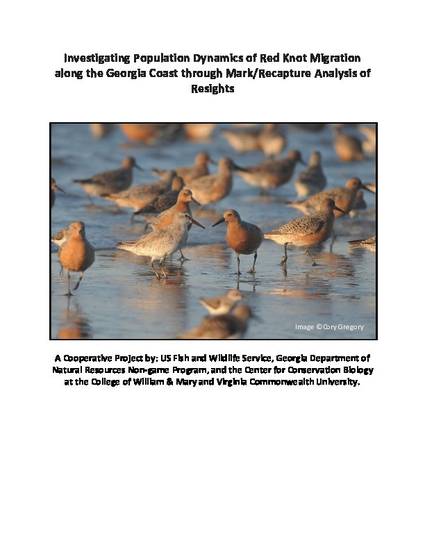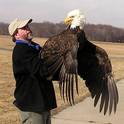
Expanding the Red Knot resight program to include other important staging areas along the Atlantic Coast is a stated priority of the USFWS Red Knot Spotlight Species Action Plan (2010) and the Red Knot Conservation Plan (2010). Our objectives in expanding the program into the Georgia Coast during spring migration are to: 1) estimate the population of Red Knots using the Georgia Coast as a spring stopover, 2) estimate spring stopover duration along the Georgia Coast, 3) determine the primary stopover locations and provide this information to local land managers, 4) contribute to the range-wide demographic studies and studies in migratory connectivity of the Red Knot in the Western Hemisphere, and 5) contribute data to the current listing process initiated by the US Fish and Wildlife Service. Regional population estimates and identification of major stopover sites are considered to be the highest priority for the Georgia Department of Natural Resources State Wildlife Action Plan, the Atlantic Flyway Shorebird Initiative (Winn et al. 2013), the US Shorebird Plan (Brown et al. 2001), the USFWS Red Knot Action Plan (2010) and the Western Hemisphere Shorebird Reserve Network Red Knot Conservation Plan for the Western Hemisphere (Niles et al. 2010a). Providing a population estimate for various staging areas is a stated goal of the WHSRN Red Knot Conservation Plan for the Western Hemisphere (Niles et al. 2010a), the Atlantic Flyway Shorebird Strategy, and the US FWS Red Knot Action Plan (2010). The Georgia Department of Natural Resources State Wildlife Action Plan ranks the Red Knot as a high priority species (with state status of “Rare”) and ranks research of the Red Knot as one primary conservation actions needed within the state.
